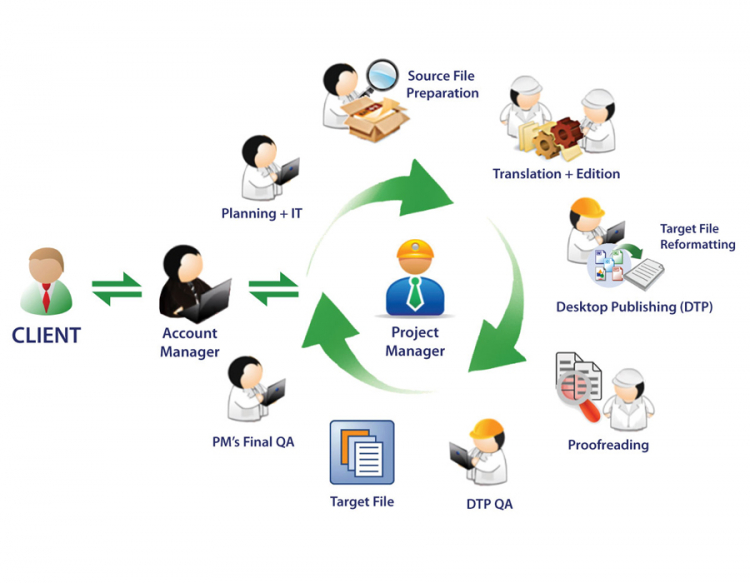In the crippling agency model in translation project management (see here, here, and here), the role of reviewers (sometimes called editors, or QA Officers) requires some serious rethinking.
In most cases, translators are given the impression that review is a higher level task that requires higher level skills. While review is, with no doubt, an important step in the translation workflow, it is nor a promotion neither a degradation in a translator’s career. Review is a different task that requires a different set of skills. (See reviewer’s duties here).
A reviewer is not an experienced translator, whose expertise is best spent on what built it in the first place, which is translation. Translators set the tone of voice, flow, and structure of the translated text, and reviewers are required to adapt to these elements and improve the text within their context. With this said, we need to highlight that the main bulk of the text, both in terms of quantity and quality, is still coming from translators, who have a stronger ownership on the project. If, for any reason, reviewers find themselves changing these basic elements of the text, this indicates a break down in the workflow that needs to be addressed.
Of course, and being a reviewer myself, I have absolutely no intention to undermine the role of reviewers. Reviewers still fill the gaps in the target text, assure quality, offer training opportunities to translators, assure no mistakes happen in numbers, units, and dates, and polish the final product.
In conclusion, translation will always remain the major and most important step in our business, while review and QA play an equally important, but different, role.





